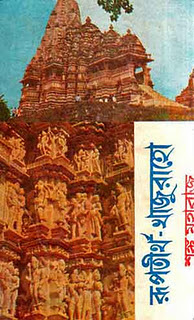 Screen writer Sujit Sen, who died recently, wrote such great films like Mahesh Bhatt's Arth and Saaransh. Now, the writer is the subject of a biographical film, Staying Alive, directed by actor-director Anant Mahadevan.Mahadevan will also star in the film.
Screen writer Sujit Sen, who died recently, wrote such great films like Mahesh Bhatt's Arth and Saaransh. Now, the writer is the subject of a biographical film, Staying Alive, directed by actor-director Anant Mahadevan.Mahadevan will also star in the film.
"It's the story of a journalist, played by me, who has had three heart attacks and is back in hospital where he encounters a gangster, played by Saurabh Shukla , in the next bed," says Mahadevan. "These are incidents that actually happened in Sujit's life. It's sad that he's gone before Staying Alive could be released. As a dear friend, I would have liked to have it released before his death. Sujit Sen was like a father figure, brilliant but broken by Bollywood's callousness."
Apparently, Sen never quite survived the break with Mahesh Bhatt.
But Anant shrugs off the Bhatt factor in Sen's life. "I came close to him (Sen) after his Bhatt phase. He has written all my films in the last seven or eight years, including my directorial debut, Dil Vil Pyar Vyar, and my unreleased Aksar. He was a chartered accountant in Kolkata and came to Mumbai during the Naxalite movement in Bengal. He eventually formed a creative coterie of screenwriters with Javed Siddiqui, Aakash Khurana and Robin Bhatt. Sujit Sen always wrote in English. He'd joke he was a Bengali who wrote in English for Hindi cinema. It was very difficult to adapt his lucid lines. The Hindi translations always appeared weak in comparison."
He adds, "Sujit was very well read and had written several Bengali novels. His screenplays were almost like books. He always spoke about the dirty dawn -- the way a patient feels when he wakes up in hospital. He had lost hope at one time. He felt like writing again when I came into his life. I don't know whether I motivated him. I just believed in him when he was abandoned by his friends. He often said he wouldn't work just for money."
Anant talks fondly of another stalwart. "Hrishikesh Mukherjee, who is completely incapacitated now, called me out of the blue and invited me to assist him. I ran to his home with Sujit Sen. Hrishida wanted to adapt a short story The Dressing Room, written by music composer Salil Chowdhary. Suddenly, Hrishida came out of his bedroom into the living room. Sujit wanted to write a screenplay about a man who was motivated to make that walk all over again. This was the way he thought. He captured real-life feelings on paper.
"As a tribute to him, I intend to direct four or five of his scripts. Sujit Sen was very touched by my little tribute to him in Staying Alive. Let me tell you, Sujit isn't an easy character to play. I had to take pointers from him, for example what happens when one gets a heart attack. No one clutches the heart, as shown in films. The feeling is as though someone is trying to strangle you. I brought in such details without making the film dull.
Anant sighs, "When Mukesh died, Raj Kapoor said he had lost his voice. With Sujit Sen, I've lost my pen. His creativity and optimism always served as an antidote to the excesses of Bollywood. He was very encouraging. When the producers of my film Dil Maange More wanted another writer, Sujit didn't mind. We used to meet at least three times a week. Frankly, there're no writers of his stature. He was arguably the best screen writer we had. His generation of writers brought so much substance and values to his writing. Today, technique has taken over screen writing. There's such a drought of writers, I don't know where to look."
The director says emotionally, "Do people even know the kind of writing Sujit Sen did? In Broadway and Hollywood, the death of a writer is front page news. He changed my life and way of thinking. Hopefully, Staying Alive will keep his memory alive."







































